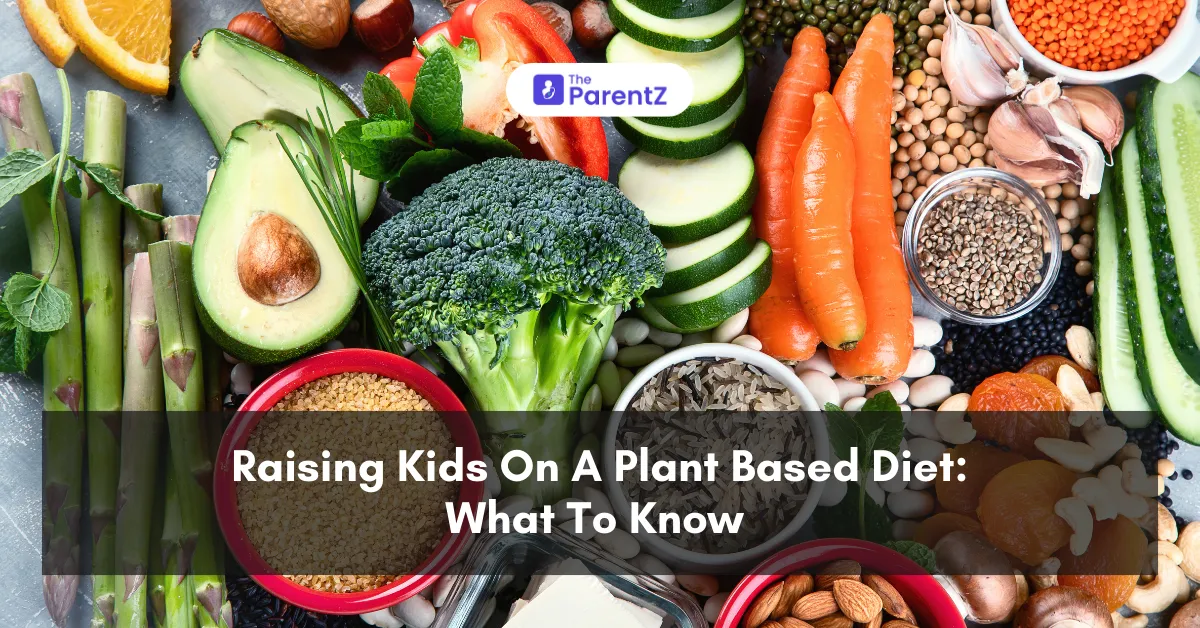Perhaps as a parent, you probably want the best for your child—whether it comes to schooling, lifestyle, or nutrition. But when it comes to raising kids on a plant-based diet, most parents may be concerned about if it's really safe to do so. And whether their child will get enough nutrition?
The answer is—yes! A well-planned plant-based diet can be healthy and nutritionally adequate for kids.
Read below this article to find out whether a plant-based diet is really safe for kids. Also find out the essential nutrients that the diet must include.
Is a Plant-Based Diet Safe for Kids?
Yes, absolutely! According to a study, a vegetarian or vegan diet is appropriate for all life stages, whether during infancy, childhood, or adolescence. The key is to plan it properly.
The best part is—vegetarian children have also been shown to have lower cholesterol levels and a low risk of heart disease later in life. Besides, plant-based diets are super-rich in fiber, antioxidants, and healthy fats, needed for better health.
Essential Nutrients for Kids on a Plant-Based Diet
Here’s what you need to take care of when planning a plant-based diet for your little ones:
Protein
Protein is an essential nutrient when it comes to growth and muscle development. Did you know? The recommended daily protein intake for kids is 13 g (ages 1-3), 19 g (ages 4-8), and 34 g (ages 9-13).
Some of the top protein-rich sources include lentils, beans, tofu, quinoa, peanut butter, chickpeas, nuts, and soy milk. For a complete protein intake, you can even add a mix of grains and legumes to their everyday diet.
Iron
Iron is needed for brain development and oxygen transport in the blood.
Spinach, lentils, tofu, chickpeas, quinoa, pumpkin seeds, and fortified cereals are some of the top sources of iron. Furthermore, paired with vitamin C-rich foods such as oranges or bell peppers, the iron absorption in the body increases significantly. According to the CDC, iron deficiency affects nearly 9 percent of toddlers aged 1-3 years, resulting in dizziness and lethargy all day long.
Vitamin B12
Did you know that B12 is essential for nervous system function and red blood cell production? However, since it’s found naturally only in animal products, supplementation becomes quite necessary by including fortified plant milks, nutritional yeast, and B12 supplements. Contrary to it, a deficiency of B12 can cause fatigue, weakness, and developmental delays in children.
Calcium & Vitamin D
Calcium and vitamin D: both of these nutrients are key for strong bones and teeth.
For calcium, the top sources include fortified plant milks, tofu, almonds, tahini, kale, and chia seeds. While the best sources of vitamin D include fortified foods, sunlight exposure, and supplements. According to the NIH, kids aged 1-3 need 700 mg of calcium per day, while ages 4-8 need 1,000 mg.
Omega-3 Fatty Acids
Lastly, Omega-3s also play a big role in supporting brain development and heart health in kids. While it is usually found in fish, plant-based sources such as chia seeds, flaxseeds, walnuts, hemp seeds, and algae-based supplements are also available.
Takeaway
Yes, raising kids on a plant-based diet is possible. In fact, this diet, when done right, can be incredibly healthy and nutritious for kids. The key is to maintain a balance and variety while ensuring your child gets all the nutrients, including protein, iron, calcium, omega-3 fatty acids, vitamins B12 and D, from a diet full of fruits, veggies, whole grains, and plant proteins.





Be the first one to comment on this story.